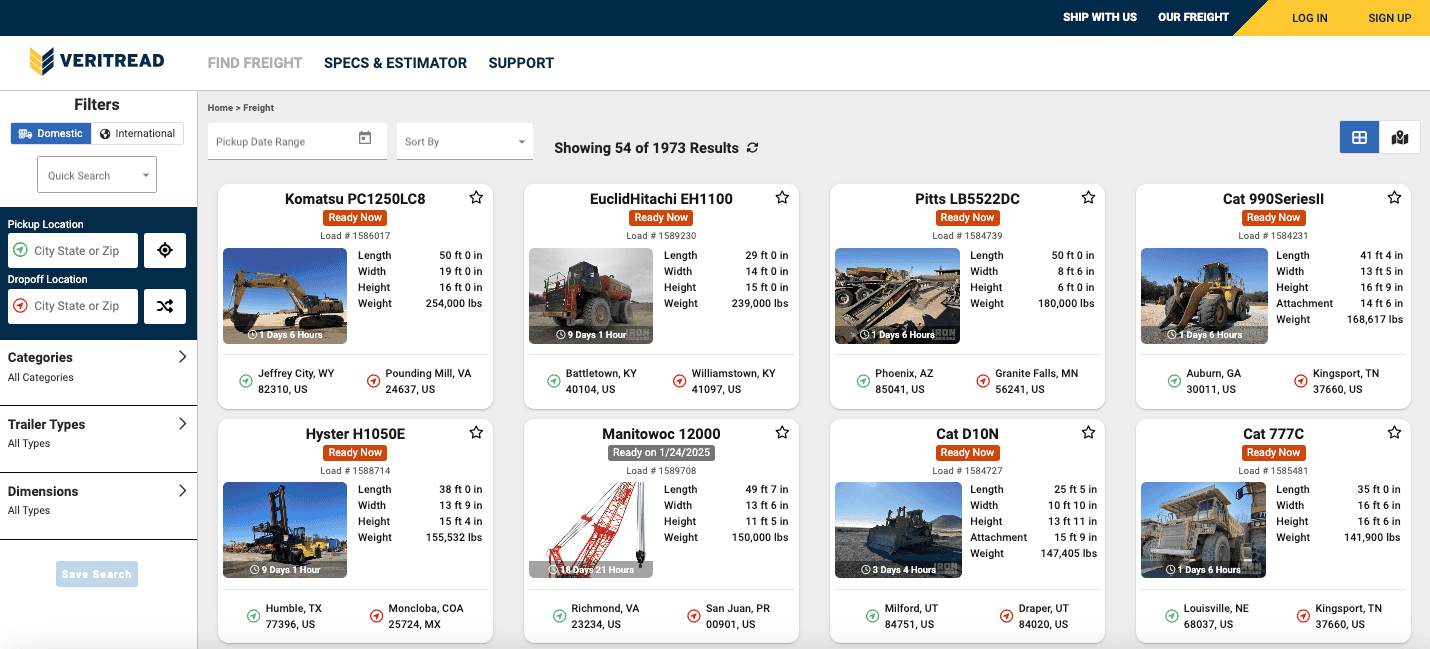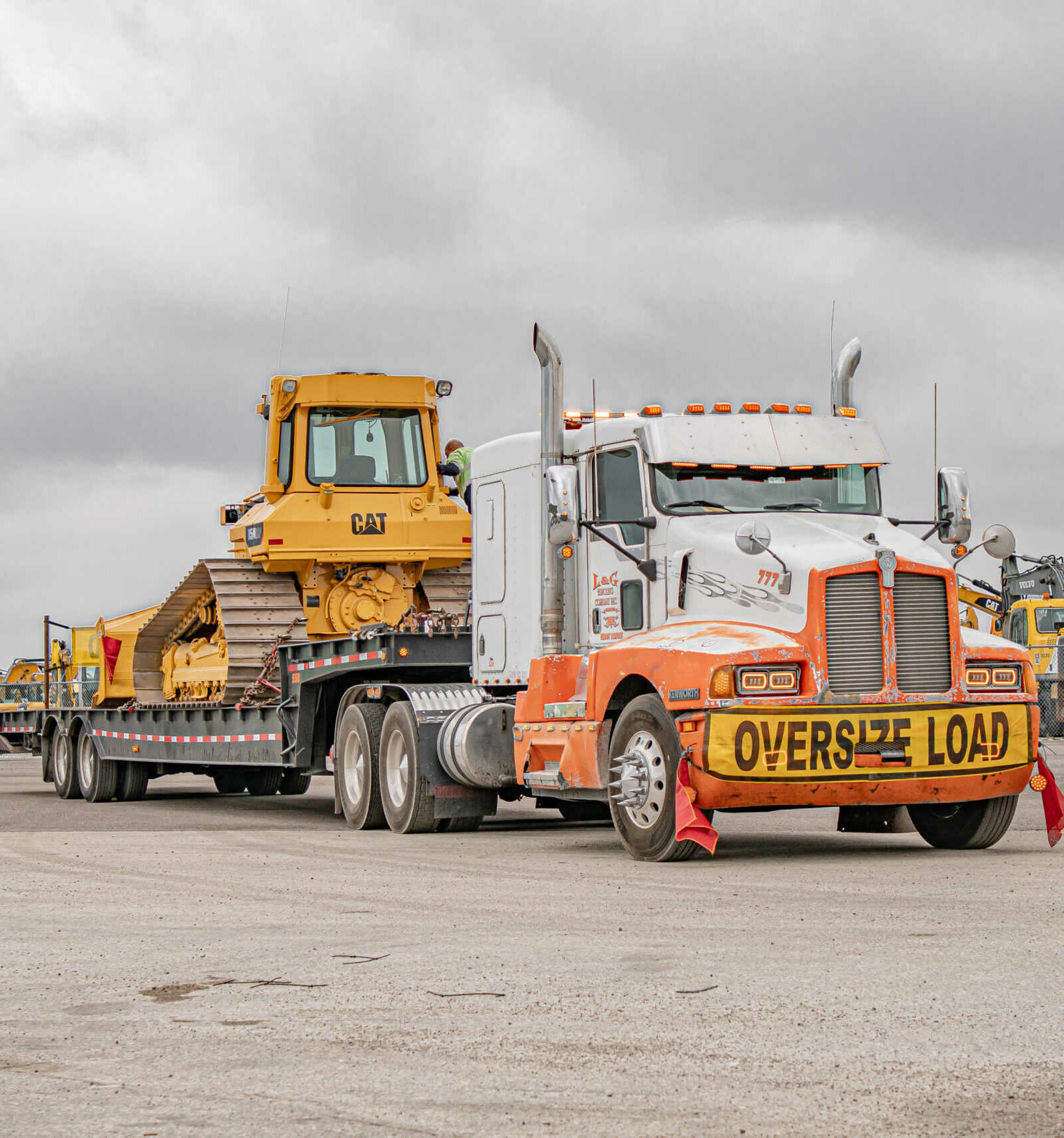The Future of Heavy Haul Transport
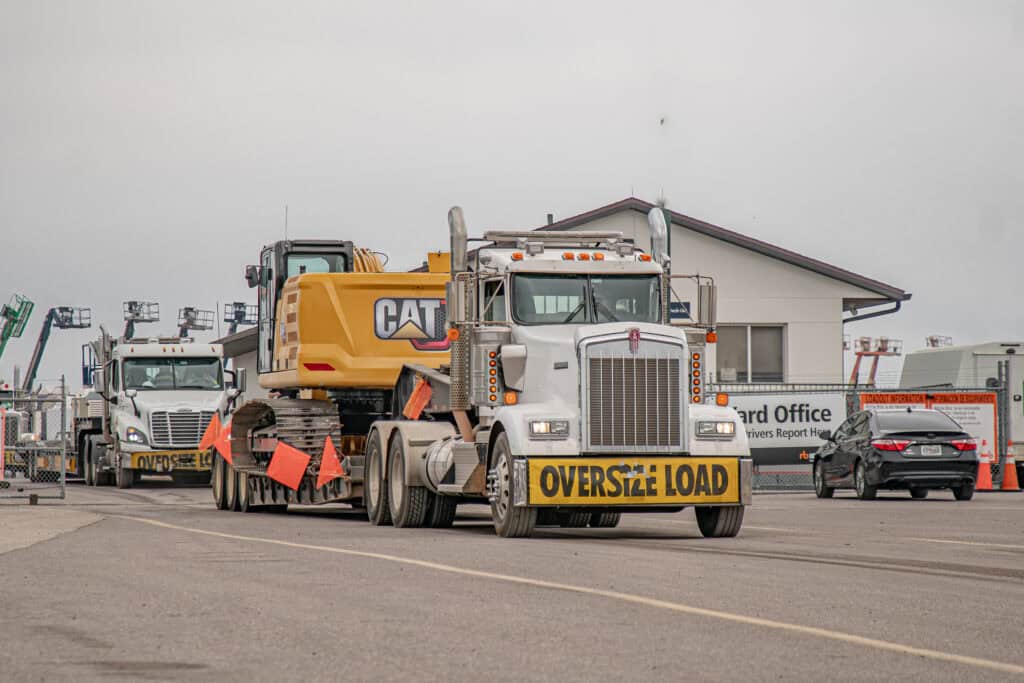
In an era defined by rapid technological advancements and shifting market landscapes, the heavy haul transportation industry stands on the cusp of transformative change. From innovative technologies to evolving market dynamics, the future of heavy haul transportation is being shaped by many different factors. In this article, we will dive into the emerging trends, technological advancements, and the implications for businesses operating in the heavy haul transport industry. Join us as we explore the exciting journey ahead and uncover the strategies to thrive in this dynamic industry.
Outline:
- What are the Emerging Trends Shaping the Future of the Heavy Haul Transportation Industry?
- How is Technology Changing the Way Heavy Haul Transport Services are Provided?
- What Role Will Automation Play in the Future of Heavy Haul Transportation?
- How Can Businesses Adapt to the Changing Landscape of the Heavy Haul Transport Industry?
- What are the Potential Challenges and Opportunities for the Heavy Haul Transport sector in the Coming Years?
What are the Emerging Trends Shaping the Future of the Heavy Haul Transportation Industry?
- Tech Takes the Wheel: The industry is witnessing a surge in advanced technology integration. GPS tracking, and real-time monitoring are becoming standard practices. Imagine a world where every aspect of your heavy haul operation is tracked and analyzed – from vehicle health and location to optimal routes and weather conditions. This data empowers companies to make informed decisions, improve efficiency, and minimize risks.
- Digital Load Booking Platforms: The days of endless phone calls and paperwork are gone. Digital load booking platforms are revolutionizing how heavy haul companies connect with shippers. These platforms allow companies to post their available equipment and browse potential loads, streamlining the entire process and reducing administrative burdens.
- Prioritizing Sustainable Platforms: Heavy haul companies are exploring eco-friendly alternatives to reduce their environmental footprint. This can involve using biofuels, optimizing routes for reduced fuel consumption, and adopting lighter-weight materials for trailers. Furthermore, there’s a growing interest in electric and hybrid heavy haul vehicles, although technological advancements are still needed to address range limitations for long-distance hauls.
How is Technology Changing the Way Heavy Haul Transport Services are Provided?
Technology is reshaping how heavy haul transport services are delivered, impacting every stage of the process, from planning and routing to execution and monitoring. Let’s explore some key ways tech is driving this transformation:
- Enhanced Route Planning and Permitting: Advanced route planning software utilizes real-time traffic data, low-clearance warnings, and weight restrictions to create the most efficient and compliant routes. This not only saves time and fuel but also minimizes the risk of encountering unforeseen obstacles or permit violations. Additionally, some software even integrates with permitting authorities, streamlining the application process.
- Improved Communication and Real Time-Tracking: Technology fosters seamless communication between all stakeholders involved in a heavy haul transport project. Dispatchers can track the location and status of vehicles in real-time, allowing for better coordination and improved customer service. Drivers can receive route updates, weather alerts, and critical information directly through on-board communication systems, enhancing overall efficiency and safety.
- Maintenance and Reduced Downtime: Telematics systems continuously monitor vehicle health, providing valuable insights into potential maintenance needs. By analyzing engine performance, tire pressure, and other critical data, companies can predict and address issues before they escalate into major breakdowns. This proactive approach minimizes downtime, keeps projects on schedule, and reduces unexpected repair costs.
- Increased Transparency and Streamlined Documentation: Electronic logging devices (ELDs) ensure compliance with regulations and provide a detailed record of every trip. Additionally, digital platforms can be used to share important documents like permits, weight certificates, and invoices with all relevant parties, improving transparency and streamlining communication.
What Role Will Automation Play in the Future of Heavy Haul Transportation?
Automation plays a significant role in the future of heavy haul transportation. While fully autonomous trucks navigating highways with massive cargo might seem futuristic, automation is already making inroads in various aspects of the industry. Let’s dive into how automation is transforming the landscape and explore its potential impact:
- Automating Repetitive Tasks: Automation can take over many of the repetitive tasks currently handled by human operators. Imagine terminal operations where self-guided vehicles automatically load and unload cargo onto trailers, streamlining the process and minimizing the risk of human error. Similarly, automated route optimization software can continuously analyze real-time traffic and weather data, making on-the-fly adjustments to ensure the most efficient route possible.
- Increased Safety Through ADAS: Advanced driver-assistance systems (ADAS) like lane departure warnings, automatic emergency braking, and blind-spot monitoring are already making a significant impact. As technology advances, these systems will become even more sophisticated, potentially reducing the risk of accidents and driver fatigue. Furthermore, some envision a future with “platooning,” where multiple trucks are electronically linked and operate semi-autonomously, creating a fuel-efficient and safer convoy.
- Remote Monitoring and Supervision: Automation opens doors for remote monitoring and supervision of heavy haul operations. Dispatch centers could have a virtual eye on multiple trucks in real-time, allowing them to identify potential issues and provide support to drivers remotely. This could improve resource allocation and provide more flexibility in managing a geographically dispersed workforce.
How Can Businesses Adapt to the Changing Landscape of the Heavy Haul Transport Industry?
The heavy haul transport industry is undergoing major changes, driven by technological advancements, sustainability concerns, and a growing focus on efficiency. To thrive in this evolving landscape, businesses need to be proactive and adaptable. Here are some key strategies to consider:
- Embrace Technology: Don’t be left behind the digital curve. Invest in telematics systems, route planning software, and digital load booking platforms. These technologies can streamline operations, improve communication, and optimize resource allocation.
- Invest in Driver Training: Technology is a powerful tool, but skilled and well-trained drivers remain the backbone of the industry. Provide ongoing training on using new technologies like ADAS systems and route planning software. Additionally, consider incorporating defensive driving techniques and fatigue management practices into your training programs.
- Build Strategic Partnerships: Collaboration can be a powerful tool. Partner with technology providers, logistics companies, and other industry stakeholders to leverage expertise and expand your service offerings. Building a strong network can open doors to new opportunities and enhance your market reach.
- Stay Informed and Adapt: The heavy haul industry is constantly evolving. Stay up-to-date on the latest trends, regulations, and technological advancements. Be prepared to adapt your business model and invest in new technologies as needed. Embrace a culture of continuous learning and innovation to stay ahead of the competition.
- Focus on Customer Service: In a competitive market, exceptional customer service can make a world of difference. Develop clear communication channels, prioritize on-time deliveries, and provide real-time tracking information to your customers. Building strong relationships and exceeding customer expectations is key to securing repeat business.
By implementing these strategies, heavy haul businesses can navigate the changing landscape and position themselves for success in the years to come. The future of the industry is bright, and those who embrace change and invest in technology, sustainability, and their workforce will be well-equipped to capitalize on the exciting opportunities ahead.
What are the Potential Challenges and Opportunities for the Heavy Haul Transport sector in the Coming Years?
The future of the heavy haul transport is filled with potential, but it’s not without its hurdles. Here’s a balanced view of the exciting opportunities and significant challenges on the horizon:
Challenges:
- Infrastructure Constraints: Inadequate infrastructures, including roads, bridges, and ports, present a significant challenge for the heavy haul transport industry. Insufficient infrastructure limits the efficiency and capacity of transportation networks, leading to congestion, delays, and increased operating costs. Addressing infrastructure deficiencies requires substantial investments in maintenance, upgrades, and new construction projects.
- Regulatory Compliance: Compliance with evolving regulatory requirements presents a challenge for heavy haul transport companies. Regulations related to emissions, safety standards, weight limits, and route restrictions vary across jurisdictions and are subject to change. Navigating complex regulatory frameworks requires ongoing monitoring, adherence to compliance standards, and investment in training and education for drivers and operators.
- Talent Shortage: The heavy haul transport sector faces a shortage of skilled labor, including drivers, technicians, and logistics professionals. As experienced workers retire and demand for transportation services grows, recruiting and retaining qualified personnel becomes increasingly challenging. The industry must invest in workforce development initiatives, training programs, and recruitment strategies to attract and retain talent.
- Technological Disruption: While technological advancements offer numerous benefits, they also present challenges for traditional heavy haul transport companies. The adoption of automation, autonomous vehicles, and digital platforms requires significant investments in infrastructure, equipment, and workforce training. Companies must navigate the transition to new technologies while ensuring operational continuity, managing risks, and addressing potential disruptions to existing business models.
Opportunities:
- Market Expansion: The growing demand for heavy haul transport services presents lucrative opportunities for industry players to expand their market presence and explore new growth markets. As globalization and trade continue to expand, there is an increasing need for specialized transportation solutions to support the movement of oversized and overweight cargo. Companies that can capitalize on emerging market trends and customer needs stand to gain a competitive advantage.
- Technology Adoption: Embracing technological innovations presents opportunities for heavy haul transport companies to improve efficiency, safety, and sustainability. Investments in telematics, IoT devices, automation, and predictive analytics can enhance fleet management, optimize route planning, and reduce operating costs. Companies that leverage technology to streamline operations and deliver innovative solutions can differentiate themselves in the market and attract new customers.
- Collaboration and Partnerships: Collaborative efforts among stakeholders, including manufacturers, shippers, technology providers, and government agencies, can drive industry-wide innovation and address common challenges. Strategic partnerships and alliances enable companies to leverage complementary strengths, share resources, and access new markets. Collaborative initiatives focused on research and development, infrastructure investment, and regulatory advocacy can create synergies and unlock new opportunities for growth and innovation.
Why Join VeriTread As A Transport Provider?
VeriTread has 100’s of loads that you won’t find anywhere else with new loads listed every day. When you complete a profile on VeriTread, we learn detailed information about your equipment, your capabilities, and the areas you service. We combine this information with our patent pending freight matching technology to proactively find you the best paying freight available. VeriTread is reserved only for carriers, brokers, and forwarders, who are properly bonded, licensed, and insured which reduces overall risk as well as keeps rates at a fair and profitable level.
veritread products
Top Articles
Freight Types
recent posts
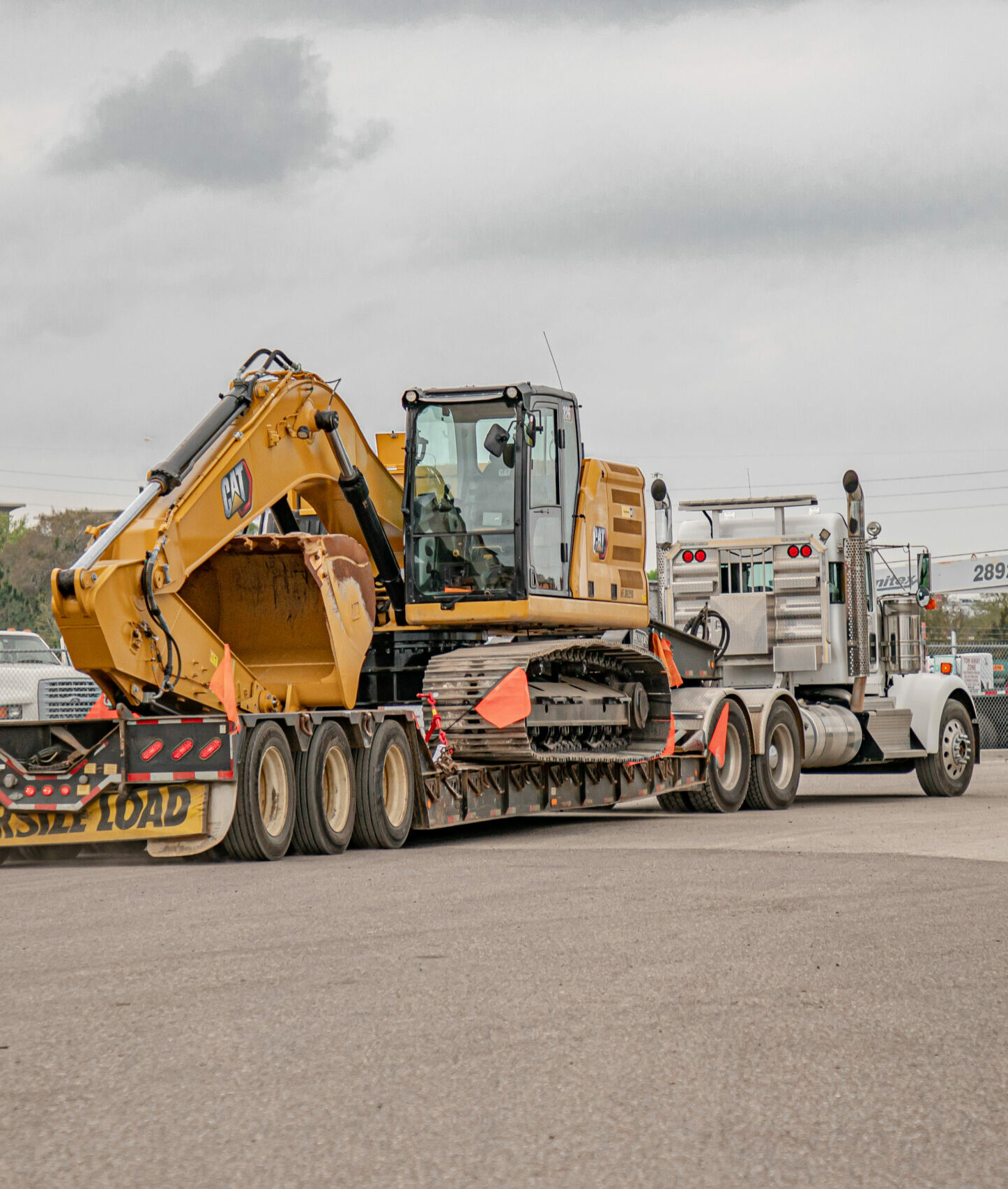
Basic Tips of Heavy Equipment Transport
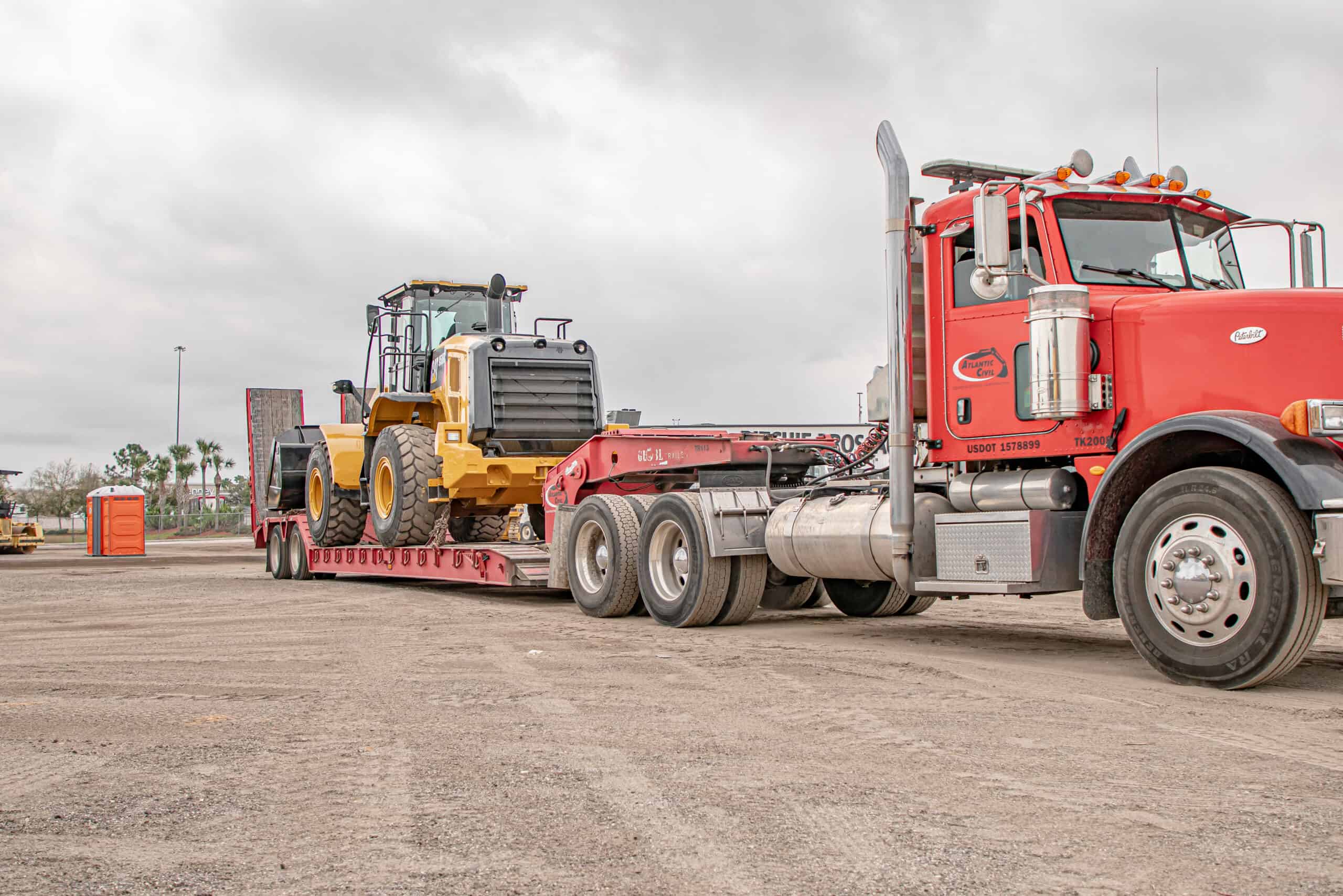
Understanding Equipment Transport Services
